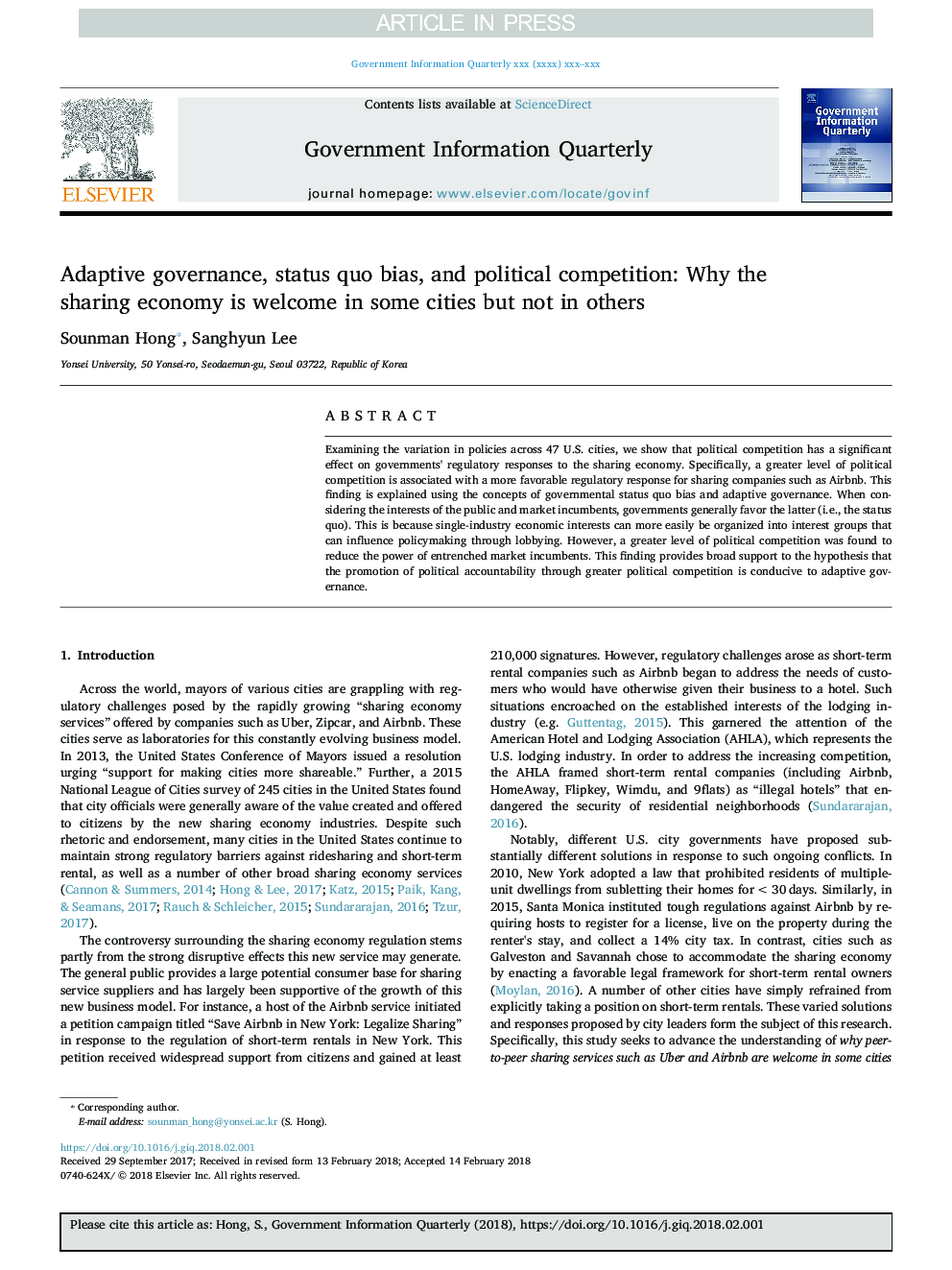| Article ID | Journal | Published Year | Pages | File Type |
|---|---|---|---|---|
| 7428526 | Government Information Quarterly | 2018 | 8 Pages |
Abstract
Examining the variation in policies across 47 U.S. cities, we show that political competition has a significant effect on governments' regulatory responses to the sharing economy. Specifically, a greater level of political competition is associated with a more favorable regulatory response for sharing companies such as Airbnb. This finding is explained using the concepts of governmental status quo bias and adaptive governance. When considering the interests of the public and market incumbents, governments generally favor the latter (i.e., the status quo). This is because single-industry economic interests can more easily be organized into interest groups that can influence policymaking through lobbying. However, a greater level of political competition was found to reduce the power of entrenched market incumbents. This finding provides broad support to the hypothesis that the promotion of political accountability through greater political competition is conducive to adaptive governance.
Related Topics
Social Sciences and Humanities
Business, Management and Accounting
Business, Management and Accounting (General)
Authors
Sounman Hong, Sanghyun Lee,
